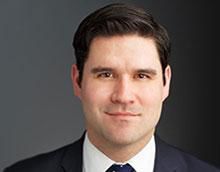- News
- News / Academics
- News / Politics And Administration
- News / Politics And Administration / City
- News / Politics And Administration / State
Iowa State alumnus to speak on smart cities

Courtesy of the Iowa State Department of Economics
Thomas Schenk, who received a master’s degree in economics from Iowa State, will speak on the subject of smart cities at 5 p.m. Tuesday in the Memorial Union.
October 21, 2019
So-called “smart cities” are cities that provide a high quality of life to their citizens, have a clean environment and implement innovative plans to better both the city and its residents.
Thomas Schenk, former chief data officer and director of analytics and performance management for the city of Chicago, will speak on the subject at 5 p.m. Tuesday in the Pioneer Room of the Memorial Union.
Schenk co-founded the Civic Analytics Network at Harvard University’s Ash Center for Democratic Governance and Innovation, according to the Iowa State lecture series website.
Schenk graduated from Drake University and then attended graduate school at Iowa State, receiving a master’s degree in economics.
According to the Iowa State department of economics website, Schenk said during his role in Chicago he used data to improve the quality of life for people in Chicago and worked to improve how efficiently the city operates.
“We also use data for predictive analytics,” Schenk said in an interview with the department of economics. “[W]e predict where rats are going to be in the city, which restaurant will fail food inspection, and we actually shift our workers around to go to those places where we think are the most important. We can predict the E. coli levels at Chicago’s beaches using statistics.”
Schenk said he had a lot of interests in school that helped him get to where he is.
“I liked a lot of topics; I liked inquiry into a lot of things or I’d get bored by just one thing,” Shenk said to the department of economics. “Economics fit that because it’s on a lot of different topics. The master’s in economics was just what I needed. It was highly quantitative and that’s what I needed. And about the right depth. If it was a Ph.D., it probably would have been too deep, sort of on one thing and one particular topic, so it was about the right depth.”
















